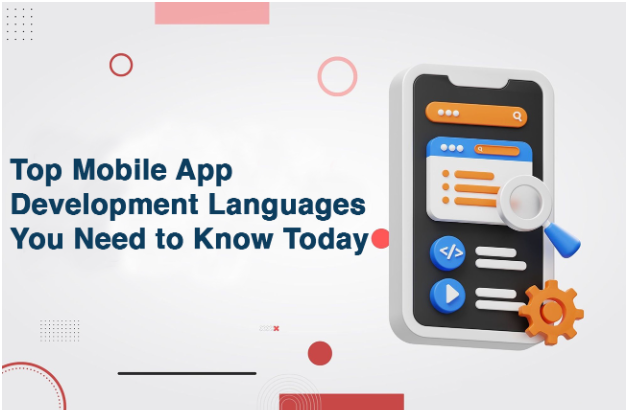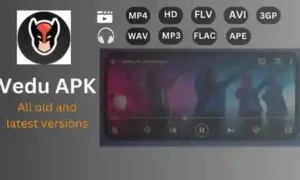When a developer starts to build a mobile app, they first decide what development language would best suit the app’s requirements. The choice of language is important in any case, for developing a high-performance Android application, a sleek iOS experience, or a cross-platform solution; language can make or break your project.
In fact, many companies that offer full stack web development services also extend their expertise to mobile app development, as both domains often share foundational programming principles and technology stacks.
Around 6.92 billion people will use smartphones globally in 2024, and if you are entering the space of development, this blog will help you know which programming languages power the world’s most-used apps.
We will simplify the top mobile app development languages you need to know today and their pros and cons to understand which suits your project best.
7 Top Mobile App Development Languages
1. Swift – The Go-To Language for iOS App Development
Swift, the official programming language of Apple for iOS, iPadOS, macOS, watchOS, and tvOS development, was introduced in 2014 and became the replacement of Objective-C.
It is one of the most effective languages with clean syntax, safety features, and modern performance.
Why Swift?
-
Recommended and favored by Apple with regular updates.
-
Faster and safer than Objective-C.
-
Open-source and growing fast in community support.
Ideal For:
-
iOS and iPadOS mobile applications.
-
Apple TV and Apple Watch apps.
-
Apps to be built by startups and enterprises for Apple devices.
Popular Apps Built with Swift:
-
Airbnb
-
Lyft
-
LinkedIn
2. Kotlin – The Preferred Language for Android App Development
Kotlin, Google’s officially announced first-class language for Android development in 2017, is a modern, expressive, and statically-typed programming language developed by JetBrains. It is so good that it has become the default choice ever since.
Why Kotlin?
-
Corresponding with Java (both can be used in the same project).
-
Precise and reduces banal code.
-
Safer with nullability built into the language.
Ideal For:
-
Native Android app development.
-
Upgrading or maintaining existing Java-based Android apps.
Popular Apps Built with Kotlin:
-
Pinterest
-
Trello
-
Evernote
3. Java – The Classic Android Development Powerhouse
Even in the times of Kotlin, Java remains the number one choice of programming for Android app development. It is object-focused language and is known for its stability, scalability, and massive developer community.
Why Java?
-
Oldest and long-term support, and considered mature tooling.
-
The biggest open-source ecosystem.
-
Platform-independent and widely learnt by developers across the world.
Ideal For:
-
Legacy Android apps.
-
Backend + Android mobile app development projects.
-
Developers who are transitioning from enterprise-level software to mobile-level software.
Popular Apps Built with Java:
-
Spotify
-
X, formerly known as Twitter (initial versions)
-
Wikipedia Search
4. Dart (Flutter) – The Cross-Platform Game-Changer
Dart is a language behind Flutter, and was created by Google as the fastest-growing cross-platform framework. If you are looking to build native compiled apps for mobile, web, and desktop from a single codebase, Flutter should be your choice.
Why Dart + Flutter?
-
Write in a single time, and deploy everywhere.
-
High-performing apps with near-native speed.
-
Appealing UIs with customizable widgets.
Ideal For:
-
Startups that are looking to build MVPs quickly.
-
Businesses are looking to create an app for both Android and iOS.
-
Developers who want expressive UIs without reinventing the wheel.
Popular Apps Built with Flutter:
-
Google Ads
-
Alibaba
-
Reflectly
5. JavaScript (React Native) – Web Devs, This One’s for You
Web developers who are looking to transition into mobile development without switching to a completely new language, JavaScript, are for you if you use it with a framework like React Native.
React Native allows for code reuse between iOS and Android and is maintained by Meta (formerly known as Facebook).
Why JavaScript + React Native?
-
Large community and huge book support.
-
Quick iteration and real-time reload.
-
Cross-platform apps with native performance.
Ideal For:
-
Web developers who are expanding into mobile.
-
Apps with critical UI needs and high interactivity.
-
MVPs and hybrid mobile solutions.
Popular Apps Built with React Native:
-
Instagram
-
Facebook Ads Manager
-
Discord (partial)
6. C# (Xamarin) – Microsoft’s Cross-Platform Solution
One more cross-platform solution by Microsoft is C# via Xamarin. It allows you to create apps for iOS, Android, and Windows, and is best integrated with Microsoft’s ecosystem, ideal for .NET developers.
Why C# + Xamarin?
-
Reclaimable code across platforms.
-
Full accessibility to native APIs.
-
Strong support from Microsoft.
Ideal For:
-
Enterprise apps.
-
Developers who are already working on the Microsoft stack.
-
Cross-platform business applications.
Popular Apps Built with Xamarin:
-
Microsoft Azure
-
Insightly
-
The World Bank’s mobile app
7. Python – Emerging in Mobile with Kivy & BeeWare
Python is not a traditional mobile app development language; however, with frameworks like Kivy and BeeWare, it is ideal for data-driven apps, prototyping, and educational tools.
Why Python?
-
Easy syntax and quick development.
-
Huge libraries for AI, ML, and data science.
-
Good for backend + frontend merger in MVPs.
Ideal For:
-
Easy mobile apps or prototypes.
-
Apps with a heavy backend/data-processing focus.
-
Python developers who are looking for mobile platforms.
Mobile App Development Language Usage: Stats at a Glance
|
Language |
Platform |
Popularity (2024*) |
Use Case |
| Swift | iOS | 72% of iOS apps | iPhone/iPad apps |
| Kotlin | Android | 85% of Android apps | Android native apps |
| Java | Android | 45% legacy Android apps | Older apps & enterprise projects |
| Dart (Flutter) | Cross-platform | 40% of devs use Flutter | MVPs and fast cross-platform UI |
| JavaScript | Cross-platform | 40% with React Native | Hybrid apps, quick development |
| C# (Xamarin) | Cross-platform | 14% in enterprises | Business & Microsoft ecosystem |
| Python | Cross-platform | Emerging | Data-driven, educational apps |
*All these stats are taken from GitHub trends, Stack Overflow, and the JetBrains Developer Ecosystem survey 2024.
How to Choose the Best Language for Your Mobile App?
You must be thinking that, after all this information, you still don’t know which language is for you. Here’s a simple decision guide:
-
Choose Swift or Kotlin if you’re developing a native, high-performing app.
-
Go with Dart (Flutter) or JavaScript (React Native) if you want cross-platform integration and a quick launch.
-
Don’t leave Java or C# if you’re maintaining or upgrading legacy systems or working in a corporate ecosystem.
-
Research and learn more about Python if you’re focusing on data, AI, or quick prototyping.
If you’re working with an IT solutions company, their expertise can help you determine the right language based on your app’s specific goals and target audience.
Final Thoughts
Well, to be clear, selecting the best programming language for mobile app development is not about what is trending but more about what fits your project goals, team skills, and long-term vision.
Every language is different and has different roles. The modern tech landscape is more flexible than ever. Once you understand the core capabilities of every language and their ecosystem, you can make informed decisions to save time and money by boosting performance and delivering exceptional user experiences.



































